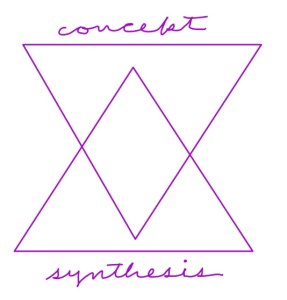A friend of mine has a habit of sending me emails consisting of simple, beautiful questions.
Years ago he introduced me to Christopher Alexander. When Alexander died I sent him an email, and that started a discussion of Alexander’s later work. This was the context (at least for me) of his latest question-poem:
What is value? Can it be objective?
Does it exist in everything, regardless of whether it is understood or appreciated?
Of course, I had to ruin the glorious simplicity by writing an encyclopedia of a response. The content is mostly the same stuff I am always going on and on about, but these questions inspired a different angle of expression.
But there is one new-ish move here, which might even be an insight: extending the complexity of Bergsonian time to both space (conceived in designerly contextual terms) and — best of all — to self. Just as Bergson conceived now, not as an instant-point, but as a flowing interaction of memories and anticipations, we can see the I, not as an ego-point, but as a subject-complex with flexibly mobile contours subsisting within any number of We’s. This polycentric-self idea may present an alternative to the individualist-collectivist continuum that for many seems the only conceivable possibility.
It all seemed worth posting, so here it is, in mildly edited form.
What is value? Can it be objective?
Christopher Alexander seems committed to objective value, if by objective you mean “inherent to objects” and not relative to a subject. My inclination is to see value as relational — a relation between valuer and valued. I know this is exactly the relativist conventional wisdom what Alexander is attempting to overcome — and I respect that — but I think the real goal here is aesthetic truthfulness (a species of intellectual conscience).
The trusty old Enlightenment method of logical coercion, though, is no match for the might of aesthetic bad faith. Someone who needs to lie about subjective values will become a true believer.
I think this is a religious matter, honestly. Subjective honesty is a virtue we have to cultivate in ourselves, and then we can recognize others who seem to respond to what we experience in similar ways. If discrepancies in response happen, it is more or less impossible to know if someone is subjectively dishonest, or having a strong, sincere idiosyncratic response — or has developed sensibilities beyond our own and are seeing beauty (or other subjective conceptions/perceptions) we haven’t learned to see, yet.
But if we want subjective truth, we’ll stay responsive to our own value-sense, while also looking for ways to transcend our current subjective limits (that is, we will entertain new ways of conceiving and perceiving and see what “takes”).
I think the best reason for this subjective self-transcendence is seeking more accommodating truth, supportive of community of subjective experience with others. Bigger, deeper, richer common sense.
Our We can be more than a mere aggregation of me’s and it’s (in orbit around one’s own I, even — no, especially — when we attempt to efface, factor out, or counter-balance that central I) but this requires a different good faith than the Enlightenment’s objective good faith.
The I won’t disappear. It can’t disappear because it doesn’t appear — any more than our own eyes appear in our vision. The I makes everything else appear. I manifests as a particular everything — what I’m calling enworldment.
We cannot decenter our own I no matter how we try, and when we attempt it, we only conceal its workings for ourselves and delude ourselves into universalizing our own current enworldment as the world per se. Decentering creates more monstrously self-idolizing self-centerings: misapotheosis.
What is needed now is polycentering. Let’s stop scolding our children and saying “you are not the center of the universe.” (When heard phenomenologically, this is manifest bullshit, because of fucking course every child is situated precisely at the center of the universe, and nowhere else, as every child knows!) What we should say is: “you are not the only center of the universe.”
The best alternative to egoist self-centeredness is not the self-decenteredness of altruism, but the self-polycenteredness of participation in community.
*
For some reason Bergson is in the air right now. Many of us are realizing or re-realizing that every instant of time is not an infinitesimal blip on a timeline, but a complex of recollections, concurrences and anticipations. And if we look around us into our environment, as designers, objects are not aggregates of infinitesimal particles, but are environed complexes of contexts, parts, wholes, ensembles. We need to grasp the fact that the I is exactly analogous, in this way, to space and time. An I subsists within a We of present people, memories of people, who I am to others, who they are to me, what I fear from them and for them, what I desire from them, and they from me — an I is a complex of freedom and response-ability. An I is not an ego-point, it is a subject-complex.
That asterisk-shaped continuum with I-Here-Now at the center does not meet at a point but, rather at a bright nebular heart streaming out into things, times, relationships — streaming out, and sometimes withdrawing back into itself to conserve itself, or to gather energy for more streaming-out, or to die as an insular speck.
Does it exist in everything, regardless of whether it is understood or appreciated?
Again, I think value can exist in everything and ideally does exist in everything, but I’m a believer in value inhering not in the subjectivity of the valuer’s valuations or in the objectivity of the valued’s value, but rather in the relationship — in the consummation of valuing. It isn’t subjective or objective — it is “interjective”.
The value is there for us, as a self-evident universal given, if we enworld ourselves in a way that invites valuing relationships. Christians call this “entering the Kingdom of Heaven.”











